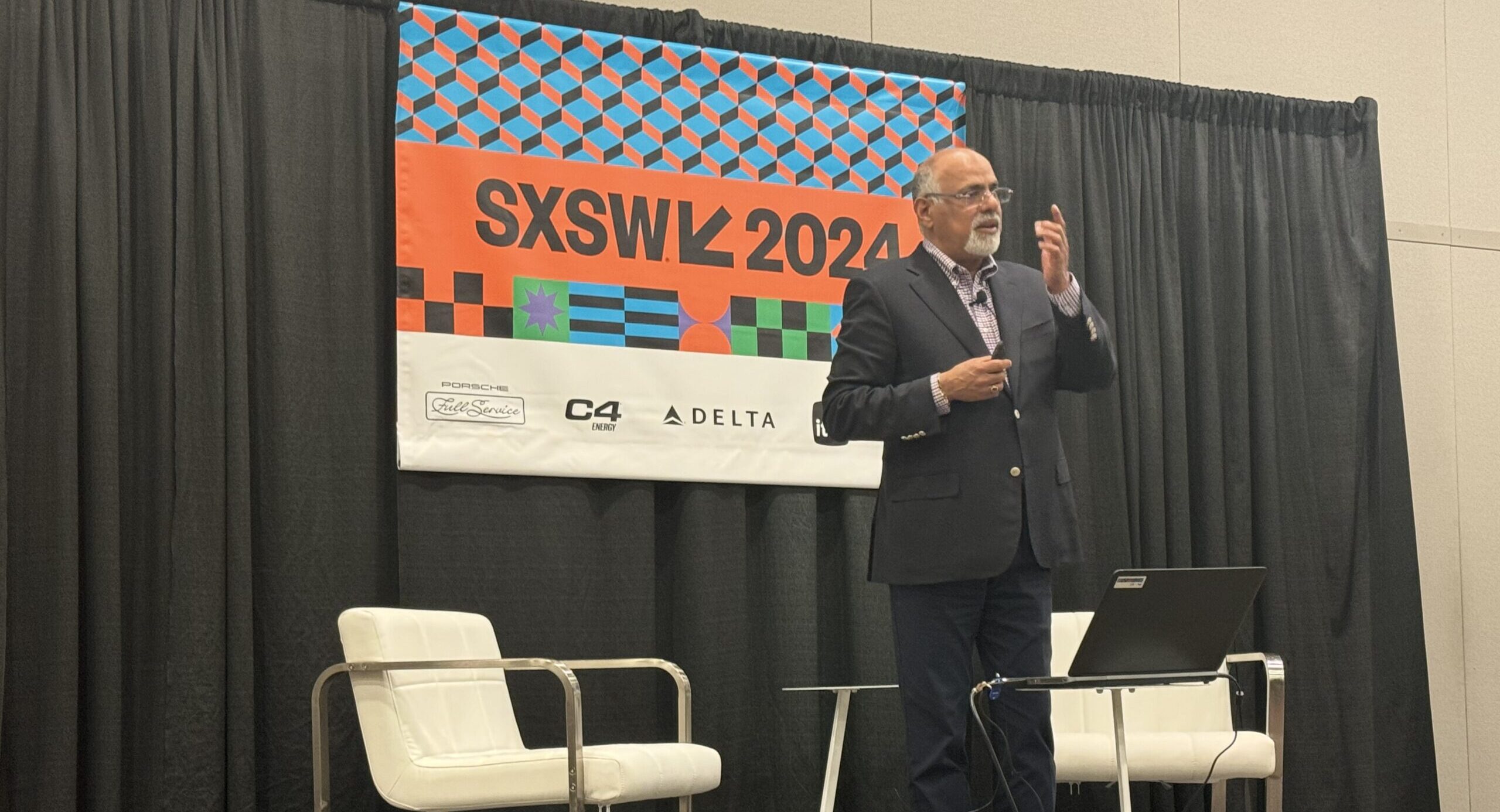Mastercard has shifted 70% of its marketing budget into experiences, to combat human attention spans worse than that of a goldfish, Raja Rajamannar, chief marketing and communications officer, has revealed.
Marketers are facing a major problem, Rajamannar told the room at SXSW Austin, which included Mediaweek: there are too many ads and not enough cut through with consumers.
“Most of them don’t have a clue. They might have seen an ad, they don’t remember the brand. They might have not remembered even the ads, because they’re all it’s a sea of sameness. The bigger thing to the blame is the sheer quantum of the ads that are being bombarded at the consumers.”
Battling with this reality, Rajamannar poured the majority of Mastercard‘s marketing budget into experiences, focused on passion points: “As marketers, we are supposed to make people’s lives better, people’s experiences fantastic, and we have chief experience officers at many companies. Instead of giving a frictionless seamless experience, we’re actually messing up that experience with introducing friction into the experience, which is disastrous.”
The 10 passion points Mastercard focuses on include: Sport, music, culinary arts and culture, movies, philanthropy, entertainment, sustainability, fashion, health, and wellbeing.
“Our hypothesis is if you appeal to consumers in this passion point and connect them with experiences that money cannot buy, but only Mastercard can give you, our brand will do well and our products will do well. It’s a huge leap of faith.
“You don’t market your products, you don’t market your services, you don’t market your benefits. You appeal to consumers, to their needs, to their interests, and to their passions, your product and service is completely incidental to what the consumer should be desiring.”
Rajamannar explained that in the old world, marketing was predicated on logic and reason, assuming the consumer would follow a sensible set of actions. “That was the biggest myth that was there in the world of marketing for the longest time,” he said.
“Marketers have realised there is something called psychology, human psychology is such that people don’t act rationally. They don’t think logically, they are irrational and illogical. It is the feelings and emotions which drive decisions of people when they are buying products or services, or sticking with the products or services that you already have.”
See also:
SXSW Austin 2024: Delta, eos, and Pfizer CMOs on ‘aggressively’ embracing AI
SXSW Austin 2024: Paramount CTO on winning gen AI arms race
SXSW Austin 2024: Meghan Markle and Katie Couric on using your voice and sexism in TV
